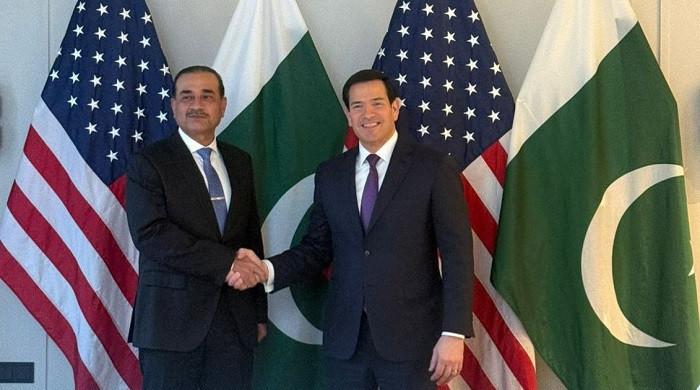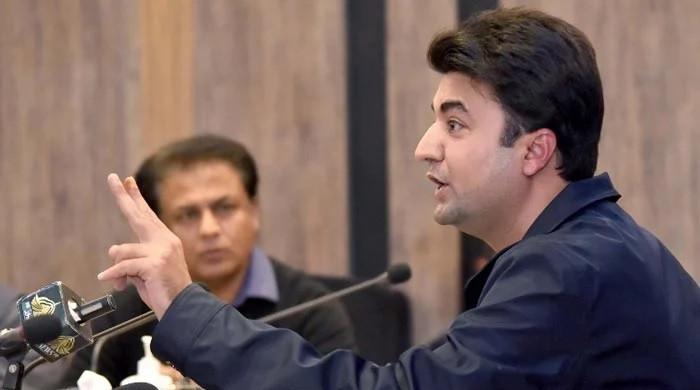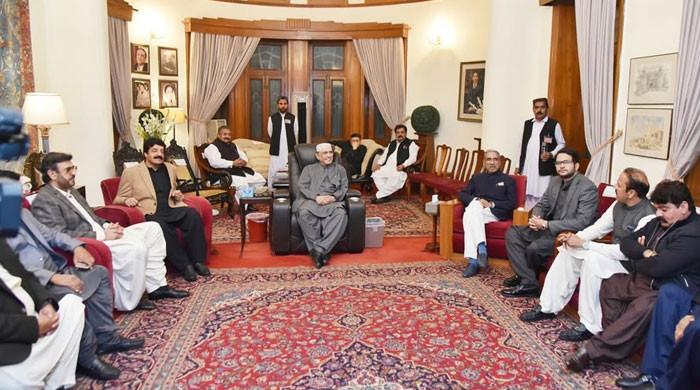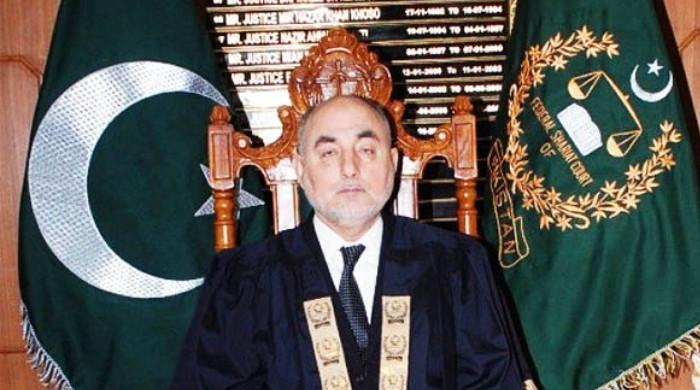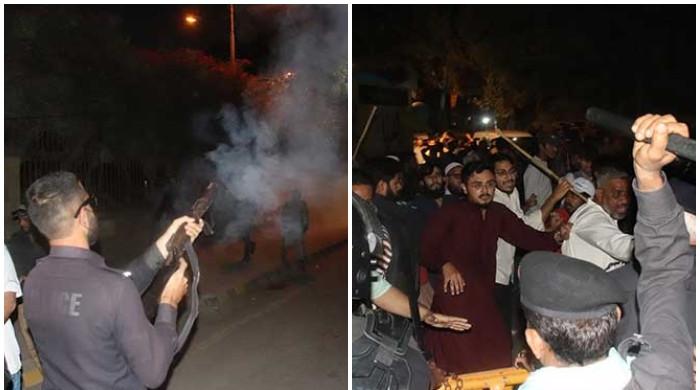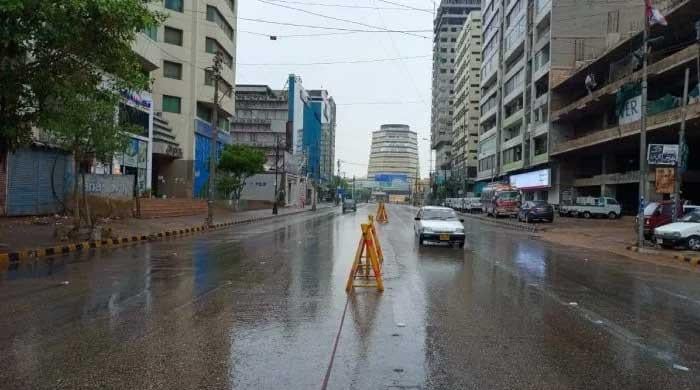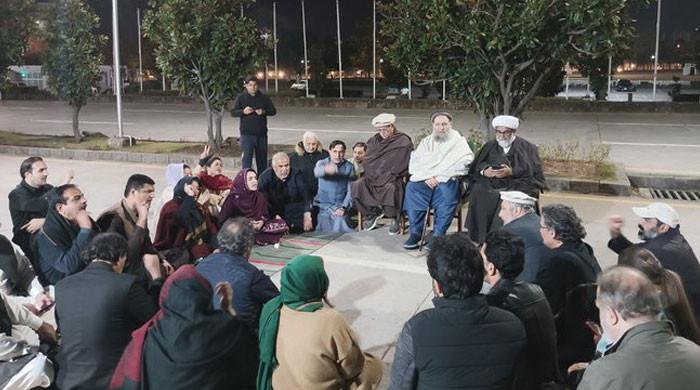7 protests, 7 agreements: A timeline of TLP protests
TLP hits streets again; rangers deployed in Punjab to maintain law and order after negotiations fail
October 31, 2021
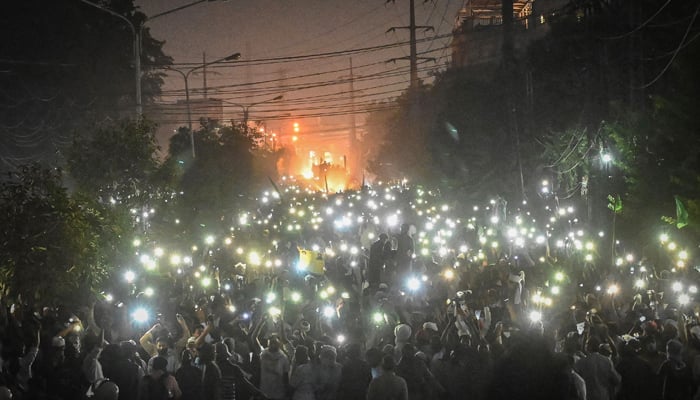
The far-right Tehreek-e-Labbaik Pakistan (TLP) was founded by Khadim Hussain Rizvi in 2015. Since then it has held seven violent protests in the country and each time, the government has entered into a verbal or written agreement with them.
Here is the timeline of protests by the TLP so far:
November 2017: The TLP held its first demonstration in 2017 and marched towards Islamabad after an amendment to the election law of the country. Three weeks into the sit-in, the then law minister resigned. Later, an agreement was signed between the TLP leaders and senior government officials of the Pakistan Muslim League-N, and then an official of the intelligence agency.
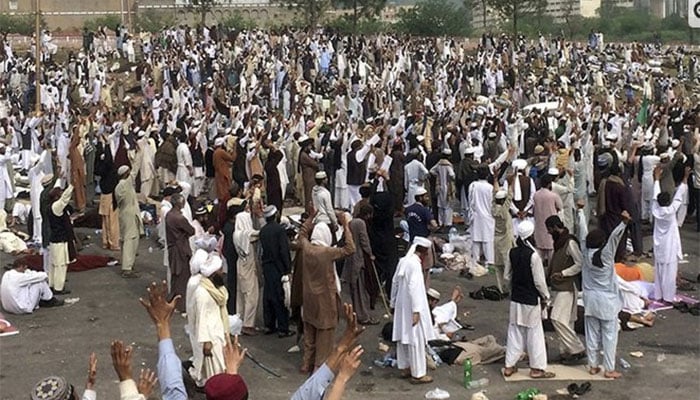
April 2018: The TLP blocked major thoroughfares in Punjab, insisting that the government fulfill all the demands listed in its 2017 Islamabad agreement. The 12-day protest ended after the government reached an agreement with the religious group.
October 2018: Protests erupted across the country against the Supreme Court’s acquittal of a Christian woman, Asia Bibi, in a blasphemy case. The Pakistan Tehreek-e-Insaf government reached a five-point agreement with the protestors, promising to challenge Asia Bibi’s acquittal and to put her name on the exit control list.
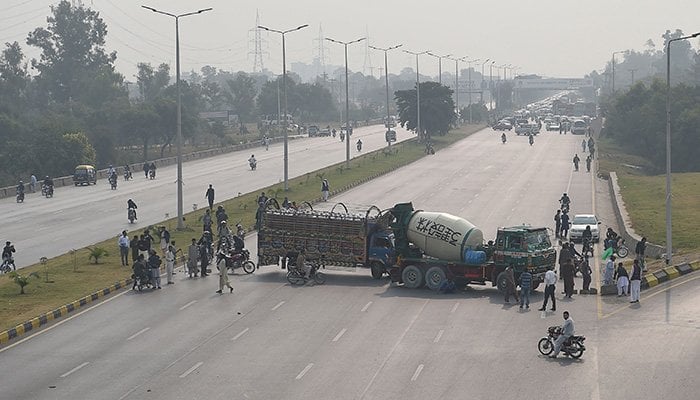
November 2018: The TLP threatened to hit the street again if its demands regarding Asia Bibi are not fulfilled. The federal information minister tweeted that Khadim Hussain Rizvi, the head of the TLP, had been taken into “protective custody” and other leaders of the group had also been rounded up.
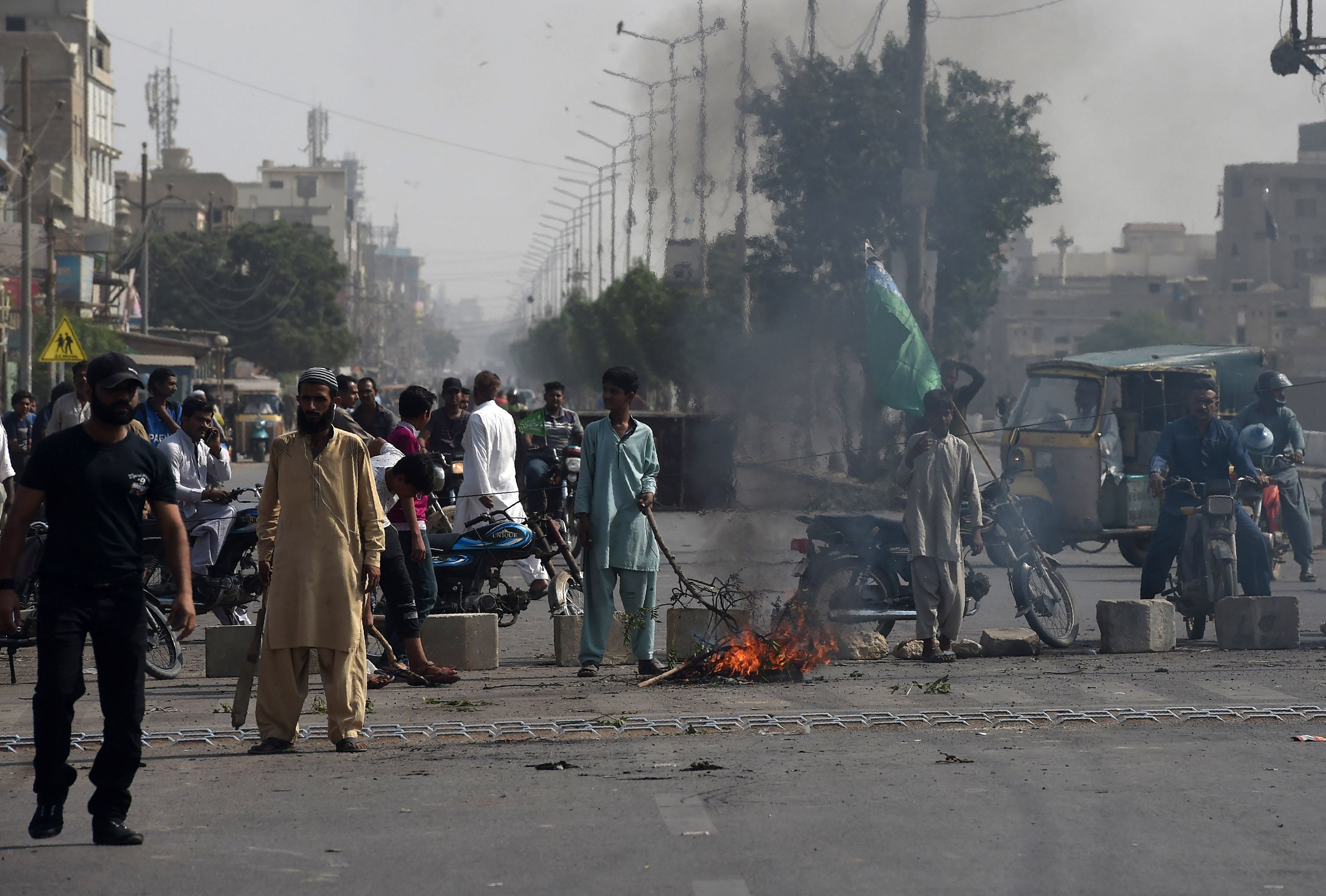
November 2020: The far-right group marched to Islamabad to protest blasphemous caricatures published in France. The government again entered into a written agreement with the group and vowed to expel the French ambassador to Pakistan and to boycott French goods, as per the TLP. The government also promised to put the question of expelling the French ambassador to the parliament “within two or three months”.
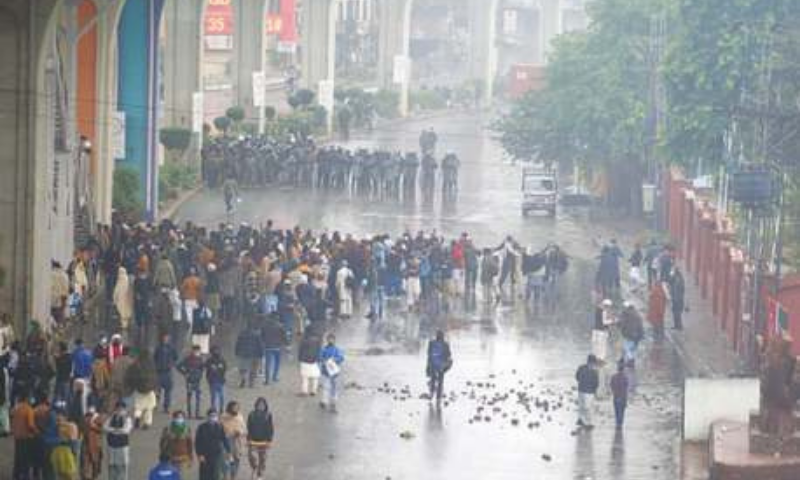
January 2021: The group warned of taking to the streets if the government does not fulfill its promise of expelling the French ambassador by February 17. The government then signed a new agreement in February agreeing to take the issue up in the parliament.
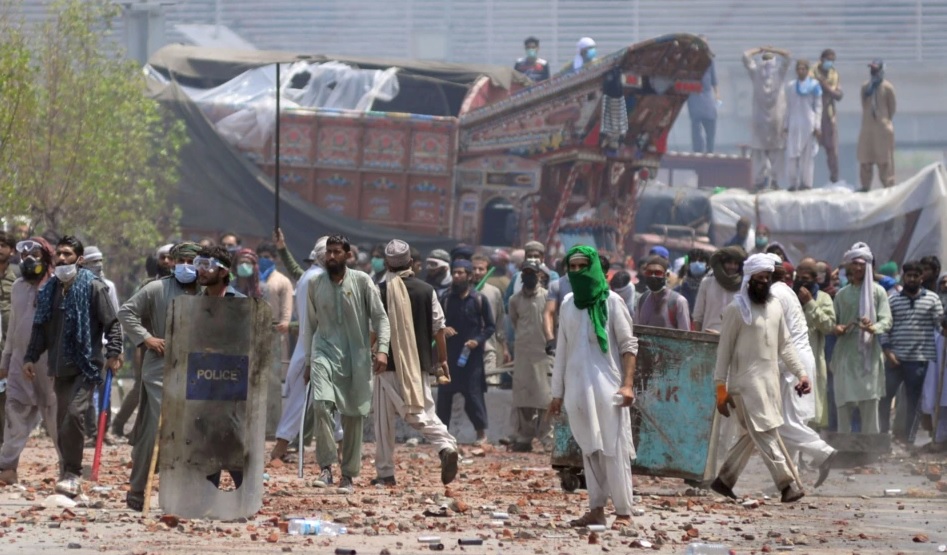
April 2021: The TLP called for the implementation of its November agreement and insisted on Pakistan downgrading ties with France. Protests erupted in several cities after Saad Rizvi, the new leader of the TLP, was arrested in Lahore. As clashes between the law enforcement agencies and the TLP became violent, 16 cops were taken hostage by the protesters.
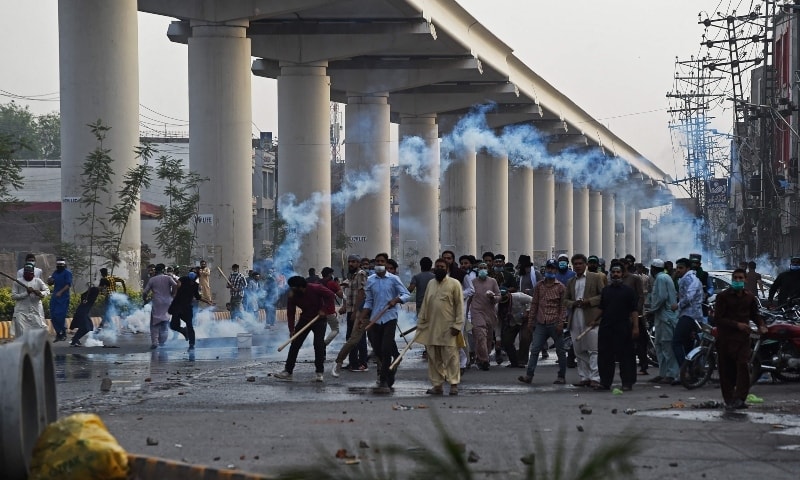
When negotiations broke down, the federal government banned the TLP under the anti-terrorism law.
But a few days later, the government reached an agreement with the group, which, stated the minister for information, was fully implemented. Hours later a resolution was also presented in the parliament to debate the expulsion of the French ambassador.
October 2021: The TLP has hit the streets again. Rangers have been deployed in the Punjab province to maintain law and order as negotiations failed with the group.
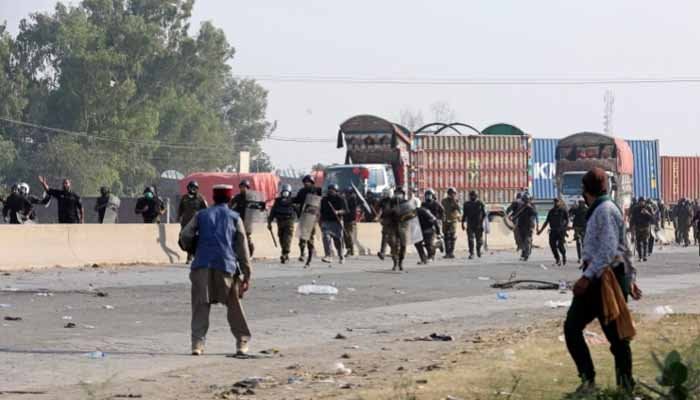
However, a high-powered government team held talks with the TLP once again and managed to reach an agreement.
Mufti Muneeb-ur-Rehman held a news conference on Sunday to announce that talks with the banned TLP have been "successful" and that an "agreement" had been reached between both sides.
Details of the agreement, however, he said will be revealed at a "suitable time". He added that the positive outcomes of the agreement will be seen in the coming days.
Rehman shared that a steering committee has been constituted under the agreement which will be headed by Minister of State for Parliamentary Affairs Ali Muhammad Khan, while Mufti Ghulam Ghous Baghdadi from TLP will join the committee. He said the committee will become active from today and start its work.





